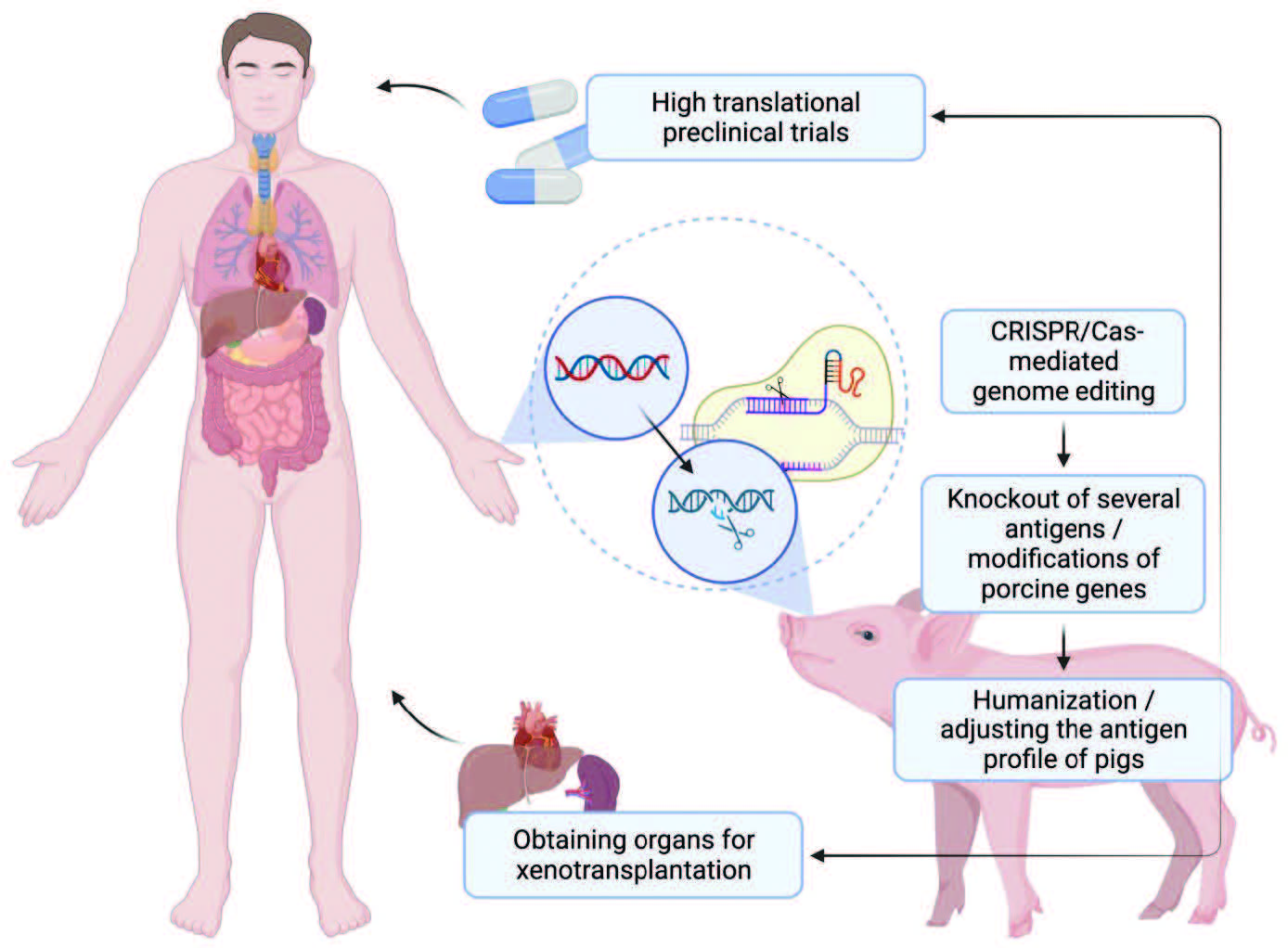CRISPR/Cas-edited pigs for personalized medicine: more than preclinical test-system
DOI:
https://doi.org/10.3897/rrpharmacology.8.83872Abstract
Novel CRISPR-Cas-based genome editing tools made it feasible to introduce a variety of precise genomic modifications in the pig genome, including introducing multiple edits simultaneously, inserting long DNA sequences into specifically targeted loci, and performing nucleotide transitions and transversions. Pigs serve as a vital agricultural resource and animal model in biomedical studies, given their advantages over the other models. Pigs share high similarities to humans regarding body/organ size, anatomy, physiology, and a metabolic profile. The pig genome can be modified to carry the same genetic mutations found in humans to replicate inherited diseases to provide preclinical trials of drugs. Moreover, CRISPR-based modification of pigs antigen profile makes it possible to offer porcine organs for xenotransplantation with minimal transplant rejection responses. This review summarizes recent advances in endonuclease-mediated genome editing tools and research progress of genome-edited pigs as personalized test-systems for preclinical trials and as donors of organs with human-fit antigen profile.
Graphical abstract:
 Русский
Русский
 English
English

